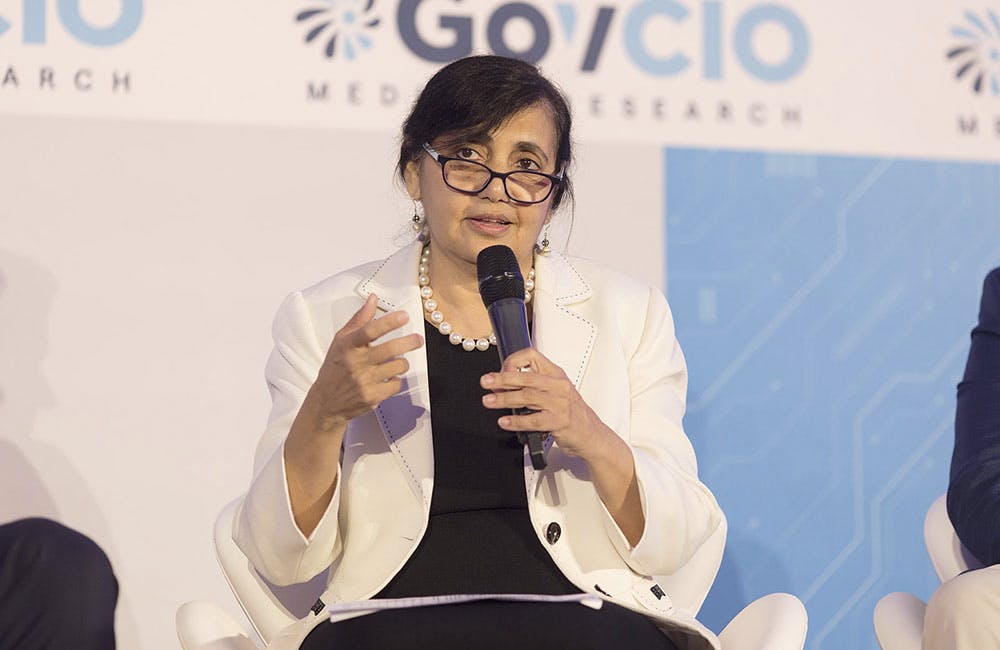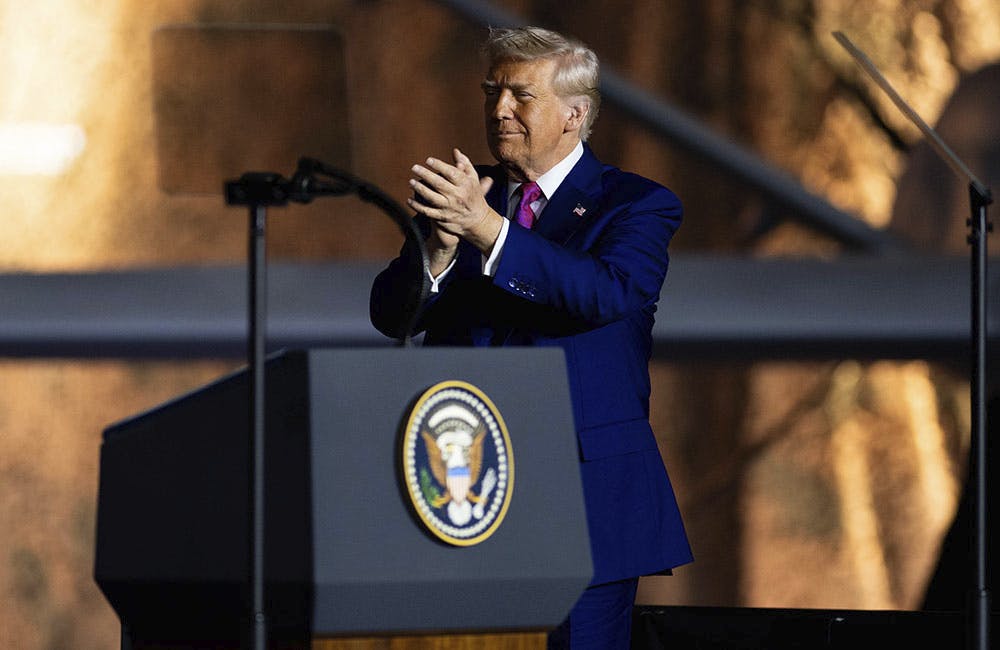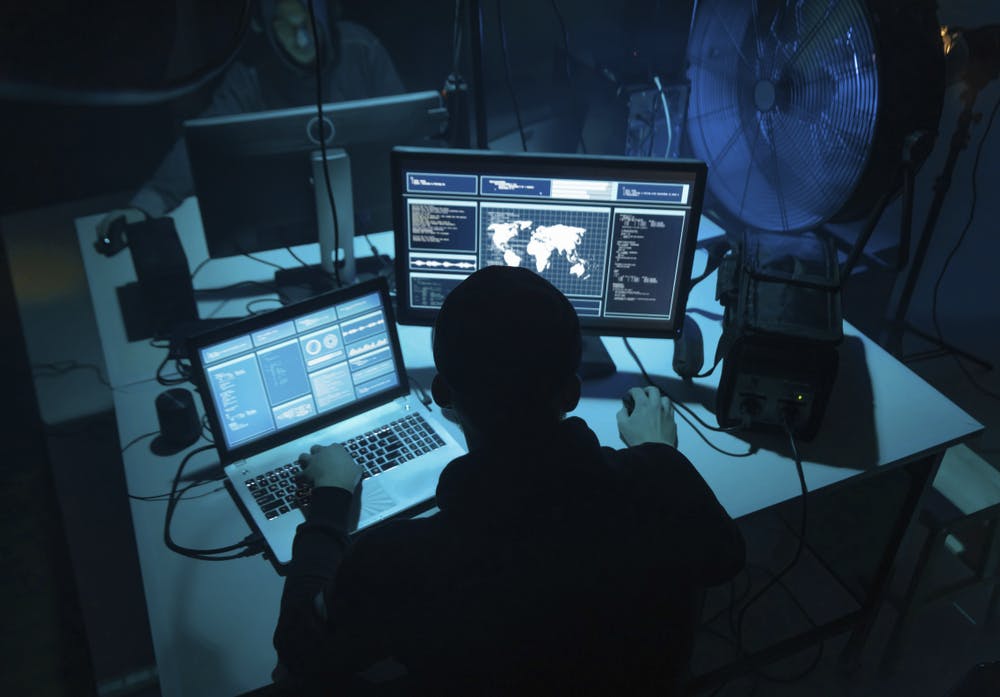Cybersecurity Program Looks to Indicate Secure Devices for Consumers

A new cybersecurity program aims to help consumers make informed decisions when purchasing smart devices.
The Biden-Harris Administration announced the U.S. Cyber Trust Mark initiative on July 18. Federal Communcations Commission (FCC) Chairwoman Jessica Rosenworcel proposed the labeling program, which will clearly outline secure devices and products that are less vulnerable to cyberattacks.
“Smart devices make our lives easier and more efficient—from allowing us to check who is at the front door when we’re away to helping us keep tabs on our health, remotely adjust the thermostat to save energy, work from home more efficiently, and much more,” Rosenworcel said. “But increased interconnection also brings increased security and privacy risks.”
According to Rosenworcel, qualifying products must adhere to the National Institute of Standards and Technology’s cybersecurity labeling criteria for Internet of Things (IoT) products. Certified devices will feature the Cyber Trust Mark logo and a QR code that leads to more security information on their packaging.
“[The initiative] will allow Americans to confidently identify which internet- and Bluetooth-connected devices are cybersecure,” deputy national security advisor Anne Neuberger said during a pre-announcement briefing in July.
Amazon, Best Buy, Google, LG Electronics U.S.A., Logitech, and Samsung Electronics have declared their support for the program. The White House expects the Cyber Trust Mark logo to be seen on products by late 2024 after the FCC seeks public comment on launching the program.
This news precedes reports that President Joe Biden will nominate Harry Coker Jr. as the National Cyber Director. In this role, Coker is expected to provide his expertise on successfully rolling out this program.
This is a carousel with manually rotating slides. Use Next and Previous buttons to navigate or jump to a slide with the slide dots
-

The Next AI Wave Requires Stronger Cyber Defenses, Data Management
IT officials warn of new vulnerabilities posed by AI as agencies continue to leverage the tech to boost operational efficiency.
5m read -

Federal CIOs Push for ROI-Focused Modernization to Advance Mission Goals
CIOs focus on return on investment, data governance and application modernization to drive mission outcomes as agencies adopt new tech tools.
4m read -

DOD Can No Longer Assume Superiority in Digital Warfare, Officials Warn
The DOD must make concerted efforts to address cyber vulnerabilities to maintain the tactical edge, military leaders said at HammerCon 2025.
4m read -

Tracking CIOs in Trump's Second Term
Stay informed on the latest shifts in federal technology leadership as new CIOs are appointed and President Trump's second term takes shape.
6m read -

Inside Oak Ridge National Lab’s Pioneer Approach to AI
Energy Department’s Oak Ridge National Lab transforms AI vulnerabilities into strategic opportunities for national defense.
22m listen -

AWS Summit: Innovation Accelerates IT Delivery at DOD
Marine Corps Community Services is tackling outdated IT processes with agile development and cutting-edge cloud security to deliver mission-critical capabilities faster.
12m watch -

AWS Summit: NIST Secures High-Performance Computing Against Evolving Threats
NIST’s Yang Guo reveals the broad attack surface of high-performance computing and explains developing guidance and future-proofing security strategies.
9m watch -

Trump Overhauls Federal Cybersecurity with New Executive Order
The new directive aims to strengthen digital defenses while rolling back "burdensome" software requirements and refocusing AI security.
3m read -

AWS Summit: Forging Successful Cloud Modernization Partnerships
Industry leaders share insights on the critical role industry partnerships have in enabling government agencies to navigate procurement challenges for cloud and zero trust solutions.
24m watch Partner Content -

CISA's CVE Program and Why it Matters for Zero Trust
The vulnerability program provides the cybersecurity community visibility into software as part of a key pillar of CISA's zero trust model.
5m read -

Air Force, Coast Guard Talk Data Security Efforts for AI Development
The services' AI initiatives include efforts like creating clean training data, countering data poisoning and bridging siloed teams.
4m read -

DHS Secretary Urges Congress to Reauthorize CISA 2015
Federal leaders highlight CISA 2015's role in strengthening public-private partnerships and defending against evolving cyber threats.
3m read
















